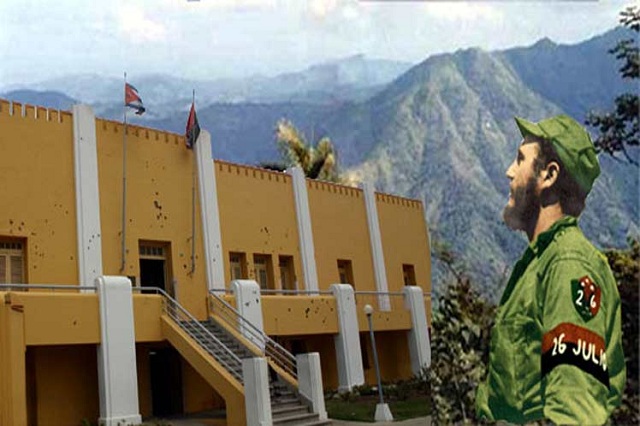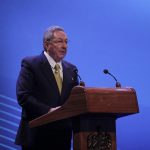Havana: Cuba is commemorating today the Day of National Rebellion, when 67 years have passed since it was a military defeat, although of great political resonance, which today transcends its results against Covid-19, Prensa Latina publishes.
On the morning of that July 26, 1953, young revolutionaries, under the command of Fidel Castro, assaulted the military fortresses Guillermón Moncada, in Santiago de Cuba, and Carlos Manuel de Céspedes, in Bayamo, in the east of the Island, in the year of the centenary of the birth of the Apostle José Martí.
The Moncada Barracks was the second military fortress in the country, occupied by about a thousand men, and the Cespedes was another important garrison.
For Fidel Castro and his comrades-in-arms, the attack was the way to pay tribute to Martí when his ideology was tainted by the dictatorship of Fulgencio Batista, who had ruled the Island since the coup d’état of March 10, 1952.
The plan was drawn up in absolute secrecy. Besides Fidel Castro, only two colleagues from the movement’s leadership and his leader in Santiago de Cuba knew him. The others knew that a decisive combat was going to be carried out, but they did not know what exactly this was.
Despite the wastage of bravery by the attackers, both actions resulted in military failure.
The regime reacted with brutal repression. Batista decreed a state of siege in Santiago de Cuba and the suspension of constitutional guarantees throughout the national territory; he closed the newspaper Noticias de Hoy, the body of the Popular Socialist (communist) Party, and applied censorship to the press and radio.
The dictator’s order was to eliminate 10 revolutionaries for each soldier of the regime killed in combat. Dozens of the young people who followed Fidel Castro were fiercely killed.
Before the court that later tried him, the leader of the rebel movement made a vigorous complaint:
‘It was not killing for a minute, an hour or a whole day, but in a full week, the beatings, torture, rooftop throws and shooting did not stop for an instant as an instrument of extermination managed by perfect crime artisans’.
The then-young lawyer’s self-defense statement was later known as History Will Absolve Me. There he went from accused to accuser and denounced the ills of the Republic and the hardships of the people.
One and a half million inhabitants over the age of six did not have any approved school grade. Between the ages of 15 and 19, only 17 percent received any type of education, while the average cultural level of those over 15 did not reach the third grade of primary school, he said at the time.
In History Will Absolve Me, Fidel Castro offered solutions for all this tragedy, based on social programs that the Revolution would carry out when it came to power.
That intervention advanced the nation what would later become the Agrarian Reform, the first of the great revolutionary transformations against large landholdings, when arable land was in the hands of a few, in particular US companies.
He also advanced what was done with the conversion of barracks into schools (the Moncada one of them) and the literacy campaign that made Cuba the first country in Latin America and the Caribbean free of illiteracy.
The celebration of the Day of National Rebellion is commemorated every year at the national level and is an occasion to stimulate the selected province for its socio-economic results to host the central event of the anniversary, led by the highest authorities of the nation.
This year will be different, given the Covid-19 pandemic, which, although under control on the island, deserves the continuation of preventive measures, including social distancing and the avoidance of public acts.
But the date will not be overlooked, especially when Cuba reaps undeniable successes in the face of the disease and goes through these days the post-Covid-19 recovery process.
Also when the largest of the Antilles is immersed in the application of a comprehensive strategy to face the aftermath of the pandemic and direct its development in a complex international scenario.
In this regard, Cubans recall that phrase by Fidel Castro: “Moncada taught us to turn setbacks into victories”.

Redacción Digital
Equipo de redactores del sitio web de Radio Mayabeque



